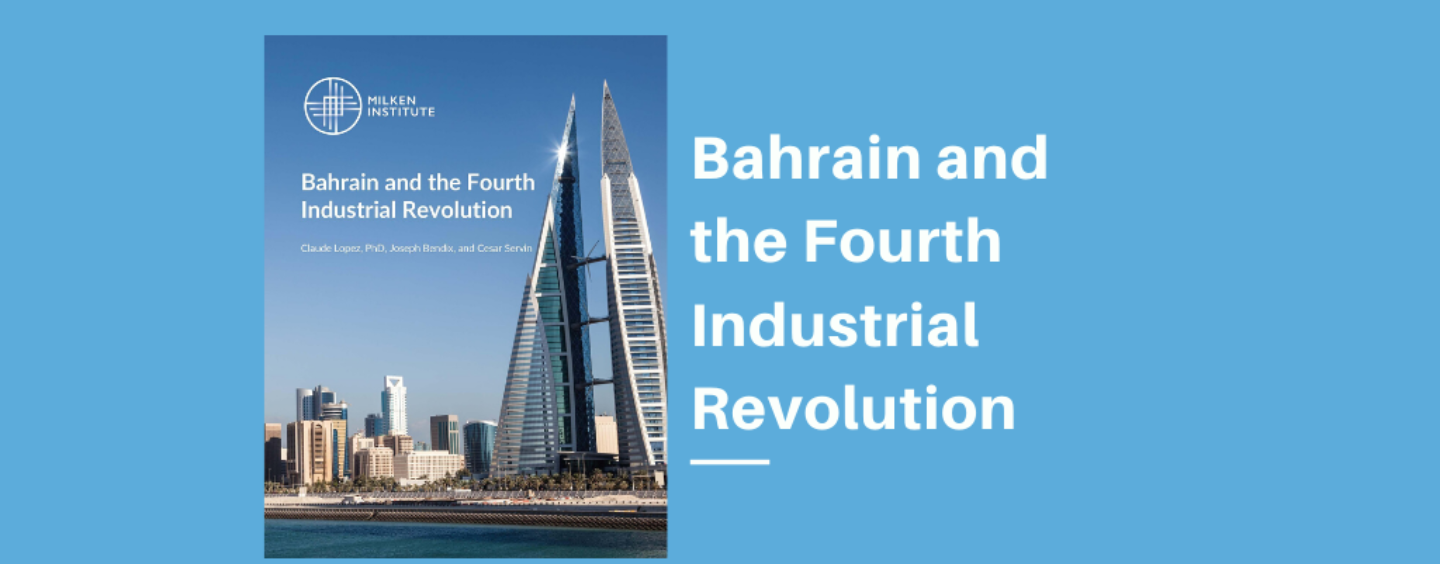Through careful planning and bold regulatory reforms, the Kingdom of Bahrain is poised to become a major hub for finance, technology, and innovation, according to a new report released by the Milken Institute.
However, Bahrain needs to continue its efforts to overcome challenges and achieve the objectives laid out in the Kingdom’s Vision 2030 strategic plan launched in 2008.
The report, Bahrain and the Fourth Industrial Revolution, is authored by Claude Lopez, Ph.D., Milken Institute director of research, together with research analysts Joseph Bendix and Cesar Servin.

Claude Lopez
“Bahrain has developed a business-friendly environment, regulatory framework, and support system that make the Kingdom an attractive destination for global companies, investors, and entrepreneurs,”
said Lopez, citing a six-fold increase in foreign direct investment between 2016 and 2018.
“With its skilled population, low cost of living, and continued investment in technology infrastructure, Bahrain is positioned to continue to achieve positive outcomes.”
The Milken Institute report points to recent policy changes that increase transparency, protect investors, align with international standards, and modernize access to Bahrain’s capital markets, which have yielded measurable results.
In addition, Bahrain has enhanced support structures for small and medium-sized enterprises (SMEs) and startups that connect government agencies, investors, and other stakeholders to help businesses grow. Today, three Bahraini firms are listed among the top-100 startups by Forbes Middle East, and the Kingdom boasts the largest share of female founders in the Middle East and North Africa in the 2019 Global Startup Ecosystem Report.
Bahrain’s strong emphasis on startups and technology comes with challenges that need to be addressed to ensure the resilience of the new economic model. Based on their analysis, the authors identify several challenges, including the need for startups to grow into larger firms that will create more jobs, access to highly trained labor to satisfy these additional jobs, and assistance for existing firms transitioning to the new digital economy.
The report offers several recommendations, including:
- Assist micro-firms to grow and offer more jobs
- Facilitate access to international talent
- Ensure private-sector wages are competitive
- Support small local firms with services that can help with the transition to digital
Bahrain and the Fourth Industrial Revolution was produced by the Milken Institute with support from the Bahrain Economic Development Board.







